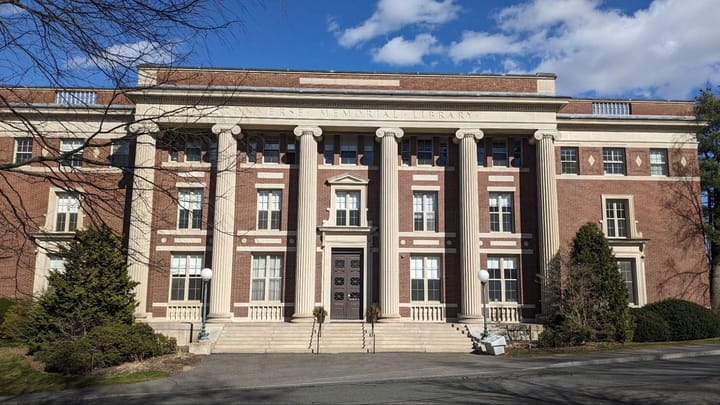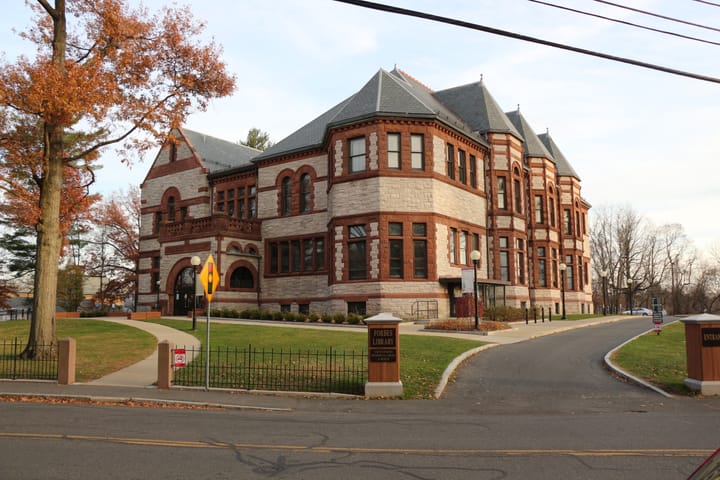Dan Brown ’86 Speaks at Virtual Point/Counterpoint Event
Brown discussed the origins of his bestselling thriller “The Da Vinci Code,” his recent work on a docuseries about the human past, and the challenges facing higher education.
Dan Brown ’86, author of the 2003 mystery thriller “The Da Vinci Code,” spoke about influences on his writing as well as current projects on Thursday, April 4 as the third speaker in this year’s Point/Counterpoint series.
Brown’s novel is among the best-selling books of the 21st century, and was adapted into a film starring Tom Hanks. The story follows a fast-thinking symbologist who becomes involved in a murder and discovers hidden truths behind the story of Jesus Christ.
Brown joined Ilan Stavans, professor of Latinx and Latino culture at the college, for the virtual event. The conversation ranged from questions about human consciousness and lucid dreaming to the current downfall of higher education and the fascinating links between science and religion.
Stavans opened the webinar with questions about Brown’s passion for teaching and the origins of Robert Langdon, the protagonist of “The Da Vinci Code” and its sequels.
Brown explained how he drew from his upbringing in creating Langdon’s character.
“I was exposed to a melting pot of races, religions, and academics, and Langdon is an amalgamation of the teachers I idolized from a young age,” he said.
Langdon is a figure that continues to inspire the author. In his initial statements, Brown comically remarked that “Robert Langdon is smarter than me” and that he admires his character for “using his mind over violence in all situations.”
Before receiving an advance for his first novel, Brown had two teaching jobs, as a Spanish teacher and as an English teacher at Phillips Exeter Academy, and wrote every day from 4 a.m. to 8 a.m. He admitted that his real passion is teaching language, but said that if he could teach a class today he would develop a curriculum around technology and its influence on modern culture.
He is currently working on a docuseries about the trajectory of the human species and how technology has challenged religion along the way.
“When we create life in a laboratory, what does it say about the creation of life being within the realm of God?” Brown asked.
Brown reflected that the more he got into science, the more spiritual the questions started to sound.
One of Brown’s goals for his novel was to place Langdon’s character in a world that challenges our notion of human consciousness. As Brown conducted research for the work, he moved further away from religious doctrine and ancient texts and closer to big, spiritual questions about human consciousness, our sense of self, and where we go after death.
“I think of science and religion as two different languages attempting to tell the same story,” he said.
In response to a question asked by Professor Stavans, Brown commented on the disappearance of recreational reading in higher education.
“There is so much competing for a student’s attention now. Our attention spans have changed since social media came around,” he said. “It’s very difficult for modern college-aged students to focus the way they used to focus.”
The panel then opened up for a brief Q&A. Brown addressed the advantages and disadvantages of pursuing a writing career, especially when it comes to receiving criticism.
“You have to develop a callus on your ego,” he said. “All you need to guide yourself is your taste, no matter if you’re a writer, musician, or a chef — you just hope people share your taste.”





Comments ()